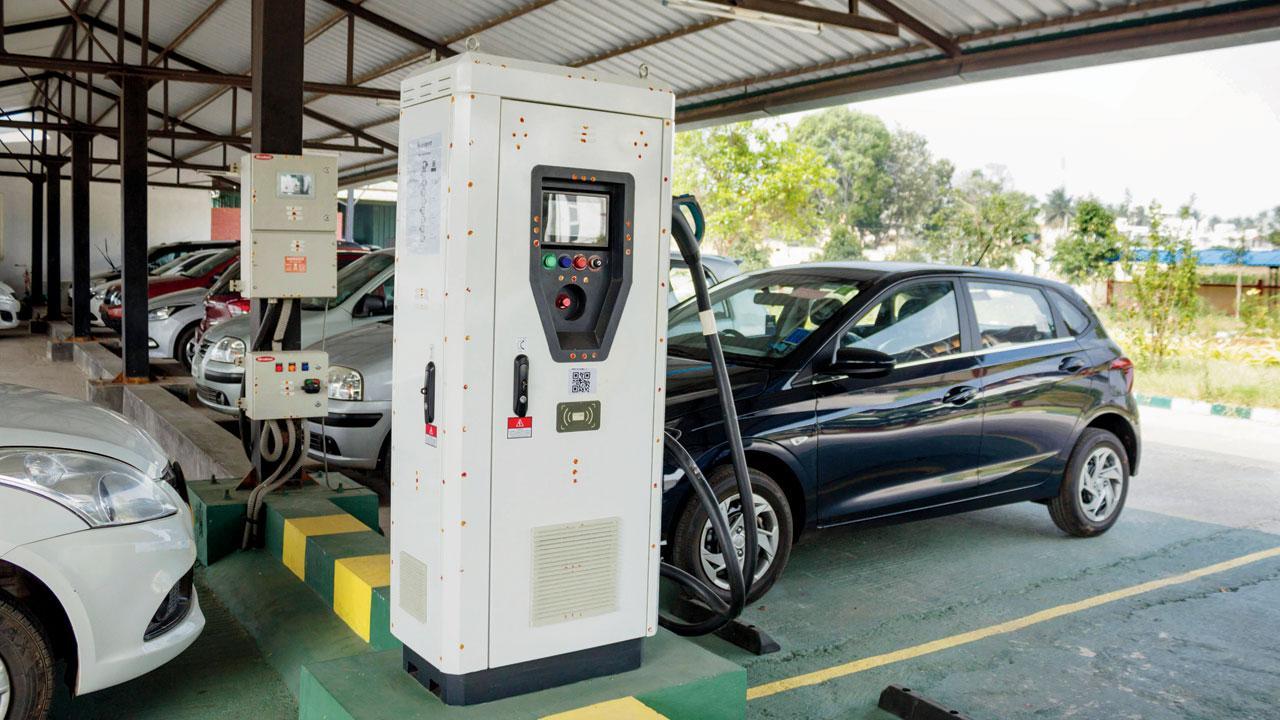Research-based initiative assesses efficacy of EV policies of all states and UTs using 21 parameters; top-ranking states found to possess 13 to 15 criteria

Focus on EV charging infra is key to achieving decarbonisation targets. Representation pic
Maharashtra is among the top five states in India with comprehensive electric vehicle (EV) policy designs, revealed an assessment conducted by Climate Trends, a research-based consultancy and capacity-building project that seeks to bring more attention to environmental, climate change and sustainable development issues. With 13-15 of the 21 parameters offered, Maharashtra, Haryana, Uttar Pradesh, Delhi, and Punjab have the most complete policies.
Of the country’s 36 states and Union Territories, 26 have released EV policies over the last five years, with 16 released between 2020 and 2022. Maharashtra covers 15 of the 21 parameters assessed in the report. It announced its EV policy on July 15, 2021.
The 21 parameters of the study, ‘Analysis Of State Electric Vehicle Policies And Their Impact’, cover targets and budget allocations, demand side and manufacturing incentives, and focus on fleet electrification, charging infrastructure mandates and job creation. The report also analyses the progress of eight policies that have been active for two years or more. It shows that none of them is on track to meet their targets of EV penetration, charging infrastructure or investments.
Also read: Mumbai: Soon you can charge your e-vehicles at BEST depots, know details here
Maharashtra is also among the nine states with the most robust demand-side incentives, among the seven states that have defined targets for fleet electrification, and among 10 states that mandate the creation of charging points in new constructions of residential complexes, offices, malls, etc.
“With e-mobility expansion being one of the key pillars of decarbonisation, state EV policies’ success is significant for India’s carbon reduction goals. A successful transition to zero-emission transport depends on the effectiveness of policy design and implementation. It also depends on having a national transport electrification target, which currently doesn’t exist in India. Our study shows that few state policies have comprehensive designs which balance EV sales, manufacturing, and overall ecosystem growth. There are gaps in implementation, leading to slower on-ground impact, which needs to be addressed through better regulation, improved monitoring mechanisms and capacity building of stakeholders across the policy value chain,” said Aarti Khosla, director, Climate Trends.
Achieving decarbonisation
Pawan Mulukutla, director, Integrated Transport, Electric Mobility and Hydrogen, at World Resources Institute (WRI) India, said, “Effective design and implementation of policies that consider each state’s characteristics are critical. We also need replicable and customisable models for states. A city-level EV cell, on the lines of Mumbai EV Cell, will be beneficial to track and catalyse growth. We must also explore cross-sectoral collaborations and partnerships that leverage the strengths of each sector. We must also analyse the readiness of the supply side to ensure that emerging models are in line with customer requirements and expectations.”
Siddharth Goel, senior policy advisor at the International Institute for Sustainable Development, said, “State EV policies can accelerate deployment and attract manufacturing investment. This has already been witnessed in a few states, such as Delhi and Maharashtra. This timely report can facilitate cross-learning between states, and support policymakers in identifying missing elements. It will also enhance public accountability by highlighting states’ progress towards their EV targets. States should consider their unique competitive advantages when designing EV policies.”
15
No of parameters out of 21 covered by Maha
 Subscribe today by clicking the link and stay updated with the latest news!" Click here!
Subscribe today by clicking the link and stay updated with the latest news!" Click here!






